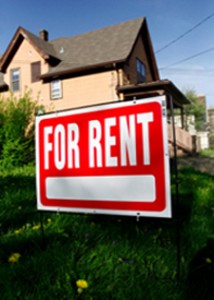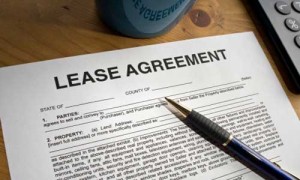Posted by Teresa on June 25, 2013 under Rental Market | 
 Ask a landlord in San Francisco or New York City how they feel about running their business in their city, and you might hear a long list of complaints. Rent control, tenants’ unions and plenty of regulations make those markets tough for landlords.
Ask a landlord in San Francisco or New York City how they feel about running their business in their city, and you might hear a long list of complaints. Rent control, tenants’ unions and plenty of regulations make those markets tough for landlords.
But of course, there are other cities that aren’t exactly ideal for landlords, for other reasons. These are the places where buying property and renting it out for a reasonable return on your investment is more challenging. Luckily, there are plenty of markets where it’s possible to buy a home for less than it costs to rent a typical home—so in theory, landlords can buy low and rent high. Of course, if it’s cheaper for landlords to buy, it’s also cheaper for homeowners to buy!
You’d be best off by analyzing your own financial situation and seeking investment advice from a professional before adding any properties to your portfolio.
Based on information from the real estate evaluation site Trulia, the following cities were rated as the “best” and “worst” places to be a landlord.
Best Places: Where it’s much cheaper to buy vs. renting:
| City |
Buying vs. Renting |
| Detroit, MI |
-70% |
| Dayton, OH |
-63% |
| Gary, IN |
-63% |
| Cleveland, OH |
-63% |
| Warren-Troy, MI |
-63% |
| Toledo, OH |
-62% |
| Memphis, TN |
-62% |
| Kansas City, MO |
-60% |
| Birmingham, AL |
-59% |
| Indianapolis, IN |
-58% |
Worst Places: Where it’s much cheaper to rent vs. buying:
| City |
Buying vs. Renting |
| San Francisco, CA |
-19% |
| Honolulu, HI |
-23% |
| San Jose, CA |
-24% |
| New York, NY |
-26% |
| Albany, NY |
-30% |
| Orange County, CA |
-32% |
| San Diego, CA |
-33% |
| Los Angeles, CA |
-35% |
| Long Island, NY |
-36% |
| Ventura County, CA |
-36% |
Posted by Teresa on June 21, 2013 under General | 
 In business, they say you can’t be all things to all people. It’s the same in the landlord business. Just as your neighborhood hair salon, coffee shop and drycleaner have to figure out who their best-fit customers are and market themselves, so should you.
In business, they say you can’t be all things to all people. It’s the same in the landlord business. Just as your neighborhood hair salon, coffee shop and drycleaner have to figure out who their best-fit customers are and market themselves, so should you.
Now, you can’t discriminate whom you will rent to, based on things like gender, family status, race, color or religion (see the complete list here), but you can certainly add amenities, focus your policies and market your property to appeal to a certain type of tenant.
For example:
- If you want high-end tenants, make your properties stand out from the others on the market with top-of-the-line appliances, wood floors, beautiful landscaping, patios, a fitness center and other premium amenities.
- If you want to attract executives and other professionals, you might think about going luxury: installing security systems, high-speed wireless Internet, upscale laundry facilities, a swimming pool and fitness center.
- Women make housing decisions in the majority of families, and more single women are in the rental market than ever before. Women also want good security and exterior lighting, as well as safe parking areas, large bathrooms with plenty of vanity space and good lighting, wood floors, bright, open rooms, high-end kitchen counters and nicer appliances.
- If you want to attract stable, long-term tenants, consider having a wide-open pet policy. People with pets, especially large dogs, are often desperate to find rental housing that will accept their furry family members. They will pay a premium, sign long-term leases, and agree to your terms and policies.
Think about the tenants you want to live in your rental property, then give them what they want. And be sure to advertise in places they’re sure to be—which is usually online. Soon, you’ll be filling units—with your targeted tenants—by word of mouth.
Start your tenant relationship off right by knowing who you’re leasing to. Protect your rental property and assets with tenant background checks. Proper tenant screening will ensure you are leasing to the best possible tenants.
Posted by Teresa on June 19, 2013 under Landlord Tips, Tenant Credit Checks | 
 Have you been thinking about becoming a landlord? Do you think you have what it takes to be a successful one? Despite the rise in home prices over the past couple of years, it could still be a great time to purchase investment property in your neck of the woods. Mortgage rates remain at historic lows, and some bargains are still out there.
Have you been thinking about becoming a landlord? Do you think you have what it takes to be a successful one? Despite the rise in home prices over the past couple of years, it could still be a great time to purchase investment property in your neck of the woods. Mortgage rates remain at historic lows, and some bargains are still out there.
New landlords are typically new investors, but the club also includes folks who’ve had a hard time selling their homes, who are turning to renting to keep the mortgage paid. And while there are plenty of resources out there for newbies, the advice of seasoned landlords can be priceless.
Here’s a compilation of what it takes to be a successful landlord, as provided by our clients over the years:
Business acumen: Treating the landlording business like a hobby is a mistake. It’s a business, in which you are trying to make money. Never forget that. Be professional. Keep excellent records. Maintain procedures and follow them. Pay for professional tax and legal advice.
Toughness: You’ll have to enforce your rules in every situation, with every tenant or prospective tenant. At times, tenants will appeal to your softer side, asking for leniency, extensions on the rent or other favors. And you’ll have to be tough.
Patience: On the other hand, you’ll be dealing with people, not numbers. Being patient (and even kind) while enforcing your rules will go a long way to establishing a good rapport with your tenants. You’ll also need patience when your phone rings at 2 a.m., when a tenant stops up the sink for the fourth time and when your landscaping crew cuts back the wrong tree.
Outgoing personality: You don’t need to be s total extrovert or comedian to be a successful landlord. But you should be good at dealing with people, able to confront or engage them as the situation warrants, and ready to smile—even when you don’t feel like it. Remember, your tenants are your customers. A pleasant demeanor will go a long way.
Consistency: Some landlords apply the rules according to the tenant or prospective tenant. For example, Tenant A’s kids are allowed to have huge float toys in the pool because you like them better than Tenant B’s kids. Or, the nicely dressed white female prospective tenant does not have to undergo a tenant credit check, but the casually dressed minority male applicant does. The first scenario could make for upset tenants; the second could have you accused of discrimination. Be consistent with all of your rules, in every situation, for every tenant.
The ability to say “no”: You have certain obligations to your tenants, including safe housing, heat, water, trash pickup and functioning plumbing. Depending on the terms of the lease, you may also be obligated to provide Internet, cable TV, air conditioning or a clean swimming pool.
You are not obligated to provide housing to people who don’t meet your minimum requirements for credit history, income or employment. You’re not obligated to allow a tenant to rescue a kitten if you’ve a no-pets policy. And, you’re under no obligation to finance your tenants’ housing. You provide the housing, and they pay you. On time. You’re within your rights to say “no” to any and all other requests—and if you have a hard time saying “no,” you might not be cut out for the landlording business.
Posted by Teresa on June 14, 2013 under Fair Housing Act, Landlord and Tenant FAQs | 
 Between the Fair Housing Act and the Americans With Disabilities Act, it’s clear that landlords must accommodate tenants with disabilities. If your rental property is of a certain size and age, it’s probably already built to accommodate wheelchairs. And if a unit is to be leased by a person with disabilities, you must allow them to make reasonable modifications to accommodate their needs. And of course, if a tenant requires a service animal, you must allow it, even if you have a “no pets” policy. You’re entitled to ask for documentation from your tenant’s healthcare provider outlining the need for the service animal.
Between the Fair Housing Act and the Americans With Disabilities Act, it’s clear that landlords must accommodate tenants with disabilities. If your rental property is of a certain size and age, it’s probably already built to accommodate wheelchairs. And if a unit is to be leased by a person with disabilities, you must allow them to make reasonable modifications to accommodate their needs. And of course, if a tenant requires a service animal, you must allow it, even if you have a “no pets” policy. You’re entitled to ask for documentation from your tenant’s healthcare provider outlining the need for the service animal.
But what about your tenants’ guests? One landlord experienced this situation recently. A tenant had a long-term visitor who brought his dog along. When reminded of the no-pets rule, the tenant stated the dog was a service animal.
In this case, is the landlord obligated to accommodate the guest’s animal? And is the landlord allowed to request documentation?
The answer to both questions is “yes.” Under the Fair Housing Act, persons who are associated with tenants are a protected class if they have a disability. If that disability is not obvious, the landlord may request verifying information. Note, however, that a landlord may not ask that the verification letter include a description of the disability.
So there you have it. You may certainly ask a tenant why their guest has an animal and if it is a service animal, ask for verification. Otherwise, you could have angry tenants who wonder why you’re making an exception to the no-pets rule.
Posted by Teresa on June 13, 2013 under Legal | 
 A new study by the U.S. Department of Housing and Urban Development found that minorities who seek rental housing, as well as those wishing to purchase homes, are experiencing racial bias.
A new study by the U.S. Department of Housing and Urban Development found that minorities who seek rental housing, as well as those wishing to purchase homes, are experiencing racial bias.
Since 1977, HUD has conducted the study once each decade, in an effort to monitor trends in racial and ethnic discrimination in both the rental and sales markets. The studies have found that reports of blatant discrimination against minorities (such as refusing to meet or provide any information) have declined, but there is still evidence of bias.
In the study, white, black, Hispanic and Asian testers inquired about available units over 8,000 times in 28 cities. In each test, one white and one minority contacted a housing provider to inquire about a randomly selected, recently advertised home or apartment. The testers were matched by gender and age, and presented themselves equally well-qualified to rent or buy the advertised unit.
In markets across the country, white testers were told about and shown more units. When compared to whites, black testers were told about 11% fewer rental units and 17% fewer homes for sale, and were shown 4% fewer rental units and 18% fewer homes for sale.
Asians were told about 10% fewer rental units and 15% fewer homes for sale, and were shown 7% fewer rental units and 19% fewer homes for sale. Hispanic testers were told about 13% fewer rental units and were shown 8% fewer rental units, but when inquiring about homes for sale, when they were treated similarly to whites.
In one test, a white tester arrived first and asked to see a two-bedroom apartment. He was shown both a two-bedroom and a one-bedroom unit, and provided applications for each. Two hours later, a Hispanic tester arrived at the same office and was told nothing was available.
In another test, a black tester was told by a real estate agent that she needed to prequalify for a loan before she could see homes for sale. The agent refused to meet with the tester until she had talked to a lender. A white tester called the same agent, was not told about prequalifying, and was able to make an appointment.
Discriminating against prospective tenants on the basis of race, ethnicity, gender, family status, religion or disability is against the law. But as this study shows, that doesn’t mean it doesn’t happen.
Start your tenant relationship off right by knowing who you’re leasing to. Protect your rental property and assets with tenant background checks. Proper tenant screening will ensure you are leasing to the best possible tenants.
Posted by Teresa on June 7, 2013 under Housing Trends, Marketing for Landlords | 

What is walkability, and why is it important to include in your advertising for rental properties? Walkability means that a home is within walking distance to shops, restaurants, public parks, libraries, schools and other places that people frequent.
People like to live in walkable communities, and demand for this feature is growing. Younger renters are particularly interested in areas developed under “New Urbanism” guidelines, which cluster living spaces around open spaces, shops and restaurants. These neighborhoods encourage walking and bicycling, while reducing the need for a car.
Cities that are walkable are growing, are more vibrant and have higher home values. They also typically have higher rents and lower vacancy rates. The ability to walk to the grocery store, their children’s schools, public transportation and coffee shops appeals to tenants who would like to avoid congestion, parking issues and fuel consumption associated with driving.
If you own or manage property in a walkable neighborhood, you should mention it in your advertising, right along with the number of bedrooms, bathrooms, types of appliances and location. In fact, you can plug the property’s address into WalkScore.com and receive a walkability rating. The higher the score, the more walkable the neighborhood. The site even provides maps to restaurants, coffee shops, grocery stores, schools and outdoor spaces.
WalkScore.com also provides links to apartments for rent. You can have a featured listing on their site, get maps to add to your website, or download a badge to that displays the walkability score. You can then add the badge to your site or Craigslist advertisements.
The WalkScore site is easy to navigate and use, and the FAQ page should provide answers to most of your questions. If you’re competing for the best tenants, adding walkability score to your advertisements can help boost your visibility and response!
Posted by Teresa on May 31, 2013 under Landlord Tips | 
 Stewart, who lives in Pennsylvania asked us what we know about the success rate of landlords whose rental properties are located hundreds of miles away. He was thinking about buying a single-family house in Florida, where he has a vacation home. “It’s priced right, and I’m down there a couple of times a year,” he said. “But I think I’ll be worried about not checking on my property enough.”
Stewart, who lives in Pennsylvania asked us what we know about the success rate of landlords whose rental properties are located hundreds of miles away. He was thinking about buying a single-family house in Florida, where he has a vacation home. “It’s priced right, and I’m down there a couple of times a year,” he said. “But I think I’ll be worried about not checking on my property enough.”
Stewart is right to be worried. While he can certainly hire a property manager to keep an eye on things, it’s usually better for landlords to have hands-on management of their rental property.
Why? For one thing, property management costs money. Showing the property, vetting applicants, running background checks and collecting rent take time, and for that you have to pay—and it will consume a portion of your profits.
As Stewart mentioned, another good reason to be a local landlord is because you can check on your property more often. Driving by to see if any strange (as in criminal) activities are going on, checking to see if security lights are on at night and having the opportunity to chat with tenants are all benefits of hands-on rental management. When tenants know you, the relationship is going to be better, and they might even take better care of your property!
Absentee landlords usually have more problems with their rental properties, although they don’t always know it. More parties, calls to police, trash piling up and uncut lawns tend to occur where landlords are not in the picture. Visibility means something, both to tenants and to the neighbors that have to live with your tenants!
However, if Stewart is going to buy the Florida property, he should hire a PM. It’s too risky to manage a rental property through the Internet and mail. The right property manager is worth the money they charge, if they can fill vacancies, find the best tenants and see repairs and maintenance are kept up.
Posted by Teresa on May 29, 2013 under Housing Trends | 
 Most landlords go the traditional route, with longer-term tenants who sign month-to-month, six-month or one-year leases. Keeping good tenants is the goal, but that is not always achievable. Turnover is sometimes the enemy, because it requires cleaning, repairs, advertising for new tenants, and vetting applicants.
Most landlords go the traditional route, with longer-term tenants who sign month-to-month, six-month or one-year leases. Keeping good tenants is the goal, but that is not always achievable. Turnover is sometimes the enemy, because it requires cleaning, repairs, advertising for new tenants, and vetting applicants.
But more landlords are seeking out vacationers who will rent their properties for a few days, a week or, if they’re lucky—a few months at the most.
Short-term vacation rentals are popping up in cities and towns that aren’t often thought of as vacation destinations, like Columbus, Ohio and Lincoln, Nebraska. Property owners advertise on sites like VRBO.com, where people searching for an alternative to hotels can easily find them.
For many travelers, a furnished apartment or home is a cozier alternative. If they have kids or pets, a vacation rental often works better than a hotel room. Families are renting homes in college towns for homecoming week or sporting events, or during the holidays to be near (but not with) family. Others are working in a town temporarily and need a place for a few months.
These property owners say that vacation rentals are ideal for their situation. They don’t want to deal with long-term renters, and they don’t mind the increased amount of paperwork and cleaning that comes with the territory. Besides, higher rents make up for it. Depending on location, vacation rentals can go for $100 – $500 per night and thousands per week.
One Columbus property owner rented her home for 140 nights at around $200 per night. Another focuses on weekend rentals, and is booked for around 45 weekends per year. The secret to success, they say, is hands-on management of the property.
If you’ve ever thought about renting your property as a vacation rental, check out sites like VRBO.com and HomeAway.com. Make sure you conduct background checks on renters, and ask other landlords about their experiences. It’s not for everyone, but the vacation rental business might be right for you!
Posted by Teresa on May 24, 2013 under Lease and Rental Agreements, Tenant Credit Checks, Tenant Screening & Background Checks | 

Okay, that’s a trick question. Why? Because your dream applicant shouldn’t “look like” anything in particular: not male, female, black, white, Asian, Catholic, Muslim, American, Russian or any other pre-determined profile. Using a prospective tenant’s race, color, religion, country of origin, gender, family status or disability to either approve or reject him or her for a lease is against the law, after all.
But there are several qualities that most landlords would probably agree make for a dream applicant:
- She can afford the rent: Smart tenants know how much of their take-home salary should go to their rent, utilities, car payment and other bills each month. Dream tenants only apply for rental housing they can afford.
- He has stable employment: A dream applicant is proud to present his employment history, because it shows he’s stable enough to hold down a job for longer than a month.
- She doesn’t balk at the tenant screening process: These days, smart tenants know that they will probably undergo tenant screening. And they appreciate the fact that you care enough about who lives in your rental property to require background checks for all tenants.
- He has a good credit history: The dream tenant has never been evicted, pays his bills on time and lives within his means. He’s not overextended on credit, is not going to have his car repossessed, and will most likely pay his rent on time each month. And, if his credit history is less than stellar, he has a co-signer lined up.
- She has great references: When you call a dream applicant’s former landlords and personal references, they all say good things. And they’re not her friends, co-workers or parents who are pretending to be former landlords!
Remember not to judge a prospective tenant by anything other than their ability to pay the rent and security deposit, and pass a background and credit check. And if you’re lucky, you’ll land a dream applicant who becomes a dream tenant!
Start your tenant relationship off right by knowing who you’re leasing to. Protect your rental property and assets with tenant background checks. Proper tenant screening will ensure you are leasing to the best possible tenants.
Posted by Teresa on May 23, 2013 under Landlord and Tenant FAQs, Landlord Paperwork and Forms, Rents and Deposits | 
 One of the biggest issues landlords and tenants seem to have is the handling of the security deposit. Smart landlords require them—and all landlords should. Here are some basic points about security deposits you should know and be ready to share with your tenants whenever questions arise.
One of the biggest issues landlords and tenants seem to have is the handling of the security deposit. Smart landlords require them—and all landlords should. Here are some basic points about security deposits you should know and be ready to share with your tenants whenever questions arise.
The security deposit is:
- Money collected up front to compensate for damages. At the termination of the lease, any repairs, cleaning fees or other expenses incurred to take care of damages outside ordinary wear and tear will be taken out of the tenant’s prepaid security deposit.
- Money collected up front to compensate for failure to pay rent, fees and late charges. In case a tenant fails to pay rent, fees or late charges, the landlord may get compensation from the security deposit.
- The best way to prevent financial squabbles between landlords and tenants. Once the tenant has moved out, it’s nearly impossible to chase him or her down to collect for lost rent or damages.
The security deposit is not:
- The last month’s rent. You should not allow a tenant’s security deposit to be used as the last month’s rent. They are two separate categories. Tell all tenants that they need to pay their last month’s rent, and after they are all moved out, you will conduct an inspection and walk-through to determine whether there are any damages to the property, and how much, if any, of their security deposit they will receive back.
- A savings account. Some states, such as California, require landlords to pay interest on security deposits held for at least a year, but most do not. California landlords may elect to hold the security deposit in an interest-bearing account or pay the interest established by a state commission. However, most states do not have the interest-paying requirement, and therefore, landlords may return all, a portion of or none of the security deposit to the tenant without any additional interest. Check your local and state laws.
- The landlord’s money. It is your tenant’s money, which you are holding as a small insurance policy against the possibility of loss due to damages or unpaid rent, fees or late charges. Smart landlords deposit tenants’ security deposits into separate accounts which they do not use for business expenses.
By the Way: It’s not up to the tenant to determine whether he or she has caused any damage. Checklists and photos of the rental unit on move-in day and move-out day are a great way to document any needed cleaning or repairs.
 Ask a landlord in San Francisco or New York City how they feel about running their business in their city, and you might hear a long list of complaints. Rent control, tenants’ unions and plenty of regulations make those markets tough for landlords.
Ask a landlord in San Francisco or New York City how they feel about running their business in their city, and you might hear a long list of complaints. Rent control, tenants’ unions and plenty of regulations make those markets tough for landlords.








